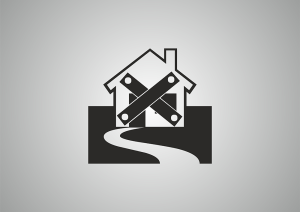 Let’s say you have your home listed for sale. Now let’s pretend you receive an extremely low offer, nowhere near your asking price.
Let’s say you have your home listed for sale. Now let’s pretend you receive an extremely low offer, nowhere near your asking price.
Your best response would be:
a) None. You wouldn’t dignify such an insulting offer with a response.
b) A business-like counter offer, perhaps only reducing the asking price by $100 or $1,000 or so.
Option “a” sure would feel good. But option “b” might actually do a better job of getting your point across, and potentially getting your home sold.
Here are a few reasons why not making a counter offer is almost always a bad idea.
1. You may have just shut the door on a much higher offer
Often times, a low-ball offer is just a shot in the dark to see if a seller may be willing to play ball. After all, nobody wants to overpay for anything, including your house. By responding with an appropriate counter offer, you’ll get the potential buyer to see that you’re willing to play ball, but he or she is going to have to play in your ballpark. No counter offer at all, however, will make the potential buyer think you’ve taken your ball and gone home…game over.
2. Realtors® and agents will remember professional courtesy
Even on a low-ball offer, an agent took the time to show a customer your home and write up an offer. Not responding will not only turn off the potential buyer, but it may also may make the agent think twice before bringing another customer to your home. A counter offer, on the other hand, shows respect for an agent’s time and effort, and it gives him or her a better idea of how much you may be willing to negotiate on price…an important bit of information he or she can use when counseling the next customer that wants to put an offer in on your home.
3. The market is changing…quickly
Digging your heels in on your home’s sale price today could impact how much home you can buy tomorrow. Waiting to get a few extra thousand dollars on the sale price of your home may seem like a good idea, but what about carrying costs (i.e., continuing to pay your mortgage, insurance, maintenance, etc.)? And if you do wait to sell, where will mortgage rates be when you’re ready to buy? Will you be stuck paying an extra percentage point on a 30-year mortgage because you waited too long? Worst of all, will the new home you’ve been eyeing still be there when you finally sell?
Selling your home can be an emotional experience, especially if you’ve lived there for a while. But the more you can take emotion out of the process, and treat it like a business transaction (which it is), the better off you’ll be.
So the next time you get a low-ball offer, don’t get angry or frustrated. Make a professional counter offer and negotiate your way to a price, and a timeframe, that makes sense for you.

Leave a Reply